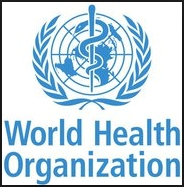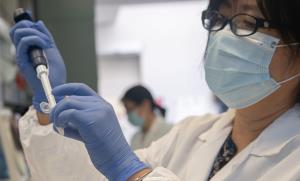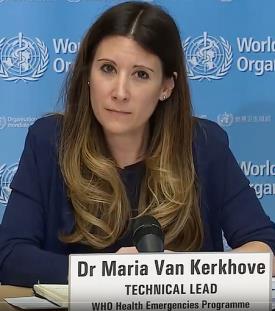 It may be questioned why a newsletter dealing with egg production and aspects of food safety and the economics of the industry comments regularly on aspects of human health and related socio-political concerns. Accepting the concept of One-Health, human and livestock infections and the success of the poultry industry are inseparable. Over the past nine months, commentaries and editorials in both EGG-NEWS and sister website CHICK-NEWS have dealt with aspects of COVID-19, considered the most important issue of our generation that has had an unprecedented impact on the profitability of our industry in many ways.
It may be questioned why a newsletter dealing with egg production and aspects of food safety and the economics of the industry comments regularly on aspects of human health and related socio-political concerns. Accepting the concept of One-Health, human and livestock infections and the success of the poultry industry are inseparable. Over the past nine months, commentaries and editorials in both EGG-NEWS and sister website CHICK-NEWS have dealt with aspects of COVID-19, considered the most important issue of our generation that has had an unprecedented impact on the profitability of our industry in many ways.
The poultry industry is influenced by the World Organization of Animal Health (OIE) a multinational body functioning under the United Nations, Food And Agricultural Organization (FAO) that establishes standards for the control of animal diseases and maintains a database of outbreaks of both catastrophic and erosive infections of livestock. Export of poultry and international trade in products is strongly dependent on the impartiality, management and operation of the OIE that develops recommended procedures to contain and prevent disease and establishes principles including regionalization and compartmentalization.
By the same token, the detection, control and prevention of diseases in our human population is the province of the United Nations, World Health Organization (WHO), representing 194 member states. In common with many multinational agencies, decisions and actions are frequently impeded by political influence that seemingly runs counter to the dictates of science. Since its inception, the WHO was the international coordinator responsible for eradication of smallpox, almost complete eradication of polio and effective responses to emerging diseases. If the WHO did not exist it would have to be invented.
 The World Health Assembly is the body responsible for establishing policy for the WHO, determining structure and priorities and appointing the Director and immediate subordinates. Effectively the U.S. is the major supporter of the WHO according to an article in the September 12th edition of The Economist. We provide one third of the $1.3 billion annual budget and U.S. epidemiologists and scientist represent ten percent of the staff of the Agency.
The World Health Assembly is the body responsible for establishing policy for the WHO, determining structure and priorities and appointing the Director and immediate subordinates. Effectively the U.S. is the major supporter of the WHO according to an article in the September 12th edition of The Economist. We provide one third of the $1.3 billion annual budget and U.S. epidemiologists and scientist represent ten percent of the staff of the Agency.
It is incongruous that the U.S., currently the World's leading nation in science and medicine, has elected to withdraw from the Agency while a pandemic is in progress. There are obviously issues concerning the performance of the WHO with respect to their response to the emergence of COVID-19. Agency inaction and alleged favoritism of China form the basis of criticism by the U.S. Administration and a justification for the impending withdrawal. Admittedly, the Agency appeared slow to publicize the extent of the infection and to issue appropriate recommendations in January and February. The WHO was tardy in publicizing the need for general use of masking and other protective measures and recommendations on therapy including the use of steroids to suppress the uncontrolled immune response responsible for mortality. In their defense WHO officials claim that they were misled by China regarding the ability of the infection to be airborne and the index nation concealed the extent of COVID-19 in Wuhan the epicenter of the disease. The WHO is dependent on cooperation by member states and the Agency maintains that it requires scientific corroboration and upper-level consensus before issuing recommendation concerning control of an infection. It is understood that the Charter restricts direct involvement in individual member nations without invitation. This inhibits providing specific directions to member nations.
 Recognizing deficiencies in addressing the challenges of Ebola and COVID-19, The World Health Assembly initiated a study on the response of the WHO. The objectives include levels of responsibility, possible changes in structure and resources that will be required to contain both the current outbreak and the emergence of future pandemics.
Recognizing deficiencies in addressing the challenges of Ebola and COVID-19, The World Health Assembly initiated a study on the response of the WHO. The objectives include levels of responsibility, possible changes in structure and resources that will be required to contain both the current outbreak and the emergence of future pandemics.
The Economist pointed to the disparities in financial support from member nations. The U.S. is responsible for 32 percent of the budget with the UK as the second major donor at approximately 20 percent. This figure is in fact matched by the Bill and Melinda Gates Foundation and far exceeds the contributions of Germany, Japan, the European Commission and even China each supporting approximately five percent of expenditure.
Instead of withdrawing from the WHO in a politically-motivated pique, the U.S. should encourage reform with decisions based on scientific merit and weighted by financial contribution. In the face of pandemics, all nations must rely on concerted, science-based decisions to limit diseases that have both health and financial implications. It is hoped that the decision to withdraw from the WHO is not irrevocable and that a more constructive approach can be developed. This will benefit world health and directly the wellbeing of our citizens, our agriculture, our industry and our economy.